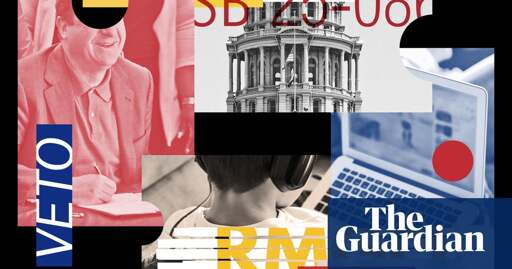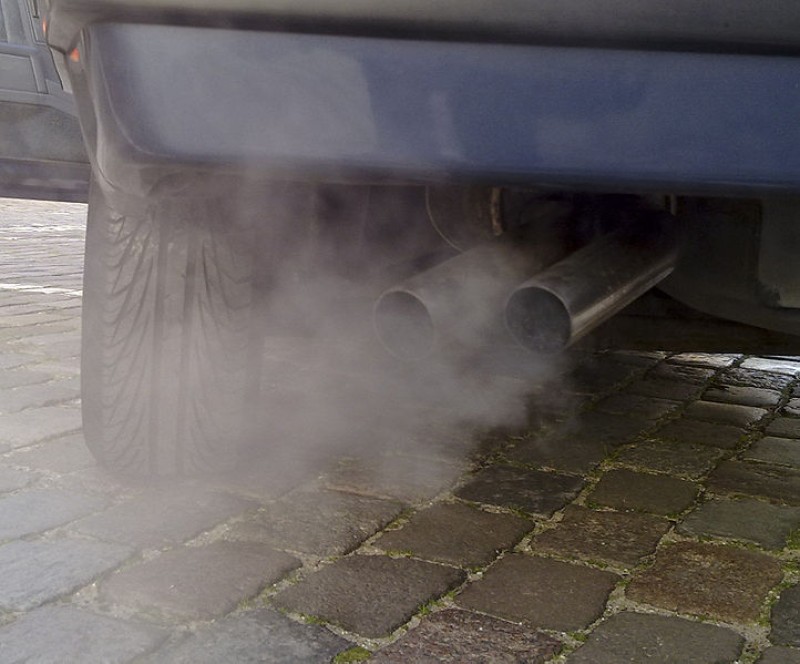Meta said it supports proposals for an EU-wide age of digital adulthood, below which minors would need parental consent to use social media
-
I've been thinking about it and here's my proposal:
- total ban on hosting/streaming videos with kids below 16. Anyone uploading content with kids is immediately banned. Platforms hosting content with kids are prosecuted.
- treat mobile phones like cigarettes. Parents giving phones to children < 16 are fined. If you want to track your kid get him a smart watch.
Who's with me?
a heavy handed approach, but I don't see one that is not heavy handed, private, and effective enough.
slight modification: mobile phone is ok if it only has a small screen like on old feature phones, no capabilities for mobile data but only calls (that's probably a software limitation), and no social media apps (or any installable apps).
perhaps wifi capability with a weak antenna, or a wifi interface that only supports low speeds.private communications is a question though, because phone calls and SMS are anything but private.
hey people, this could work!
and its not like we need to ban kids from the internet, but to only allow them with the active supervision of a parent.
-
In my opinion we would need an EU service that does the verification while sharing as little information as possible with facebooks services.
I think the EU service should only send back, if the person is allowed to use Facebook. A single yes or no. Which could mean both, that the person is either old enough or has their parents consent.
I thought that's exactly how the porn age check is going to work
-
a heavy handed approach, but I don't see one that is not heavy handed, private, and effective enough.
slight modification: mobile phone is ok if it only has a small screen like on old feature phones, no capabilities for mobile data but only calls (that's probably a software limitation), and no social media apps (or any installable apps).
perhaps wifi capability with a weak antenna, or a wifi interface that only supports low speeds.private communications is a question though, because phone calls and SMS are anything but private.
hey people, this could work!
and its not like we need to ban kids from the internet, but to only allow them with the active supervision of a parent.
Pagers. Kids under 21 can only get pagers.
They get within two meters of a smartphone, both kid, parents, and whoever owns the smartphone go straight to jail.
-
In my opinion we would need an EU service that does the verification while sharing as little information as possible with facebooks services.
I think the EU service should only send back, if the person is allowed to use Facebook. A single yes or no. Which could mean both, that the person is either old enough or has their parents consent.
Anything else would be in flagrant violation of the GDPR (and this too, probably, though not as flagrantly).
-
I don’t want age verification for social media — I’d rather parents, who in 2025 probably grew up with connected devices, be responsible for it — but if they do force this, it should be part of the operating system. Sort of like Apple Pay and Google Pay where sites and apps can essentially put some boilerplate code in that’s easy to implement and all the sites/apps get back is a yes/no answer. Users only have to go through the process once. It protects privacy way more than giving your info to every “social media” site that comes along.
It’s not ideal but it’d be way more workable than having to provide ID to every site that has social media functions. I mean, you could classify any random forum or site with a comment section as “social media” if the definition is too broad. Things like Fediverse instances wouldn’t have to each write their own implementation. (Eventually, there would be trusted, mature libraries, obviously, but that could take awhile and presumably would need to be part of every browser/app language but also at least some code for every back-end language to store the data.)
I’d rather parents, who in 2025 probably grew up with connected devices, be responsible for it
That's about as useful as saying that shops should be allowed to sell alcohol to 5 year olds and the parents should be responsible for it.
-
This post did not contain any content.
Of course they do, since small spaces like lemmy and each of it's instances would have to implement some form of age verification too, making them either close down, or ban EU IPs like misskey does.
-
This post did not contain any content.
That's a funny way to say they shouldn't be allowed to be on the net by themselves until they are 18.
Going back to the Napster days there was an analogy that the internet is like a street. If you leave a photo or an mp3 available on the street, then I can take it as I pass by.
Well similarly, if you allow your kid on the street and the internet is basically like the pink zone in Amsterdam, your kid will see things. Also they will be susceptible to abusers and advertisers.
For that reason, we should always opt for local software for them to use, no social media and no presence on the net. Also anyone doing business on the net should be barred from doing business with a kid on the net.
-
This post did not contain any content.
I've been thinking of possible ways that you could prove you're of legal age to access a site through a government service without the government being able to know who the user is, and I can't really come up with a clean solution.
The best idea that came to my mind was that you could e.g. have a challenge system where the government service challenges the user to return an encrypted randomly generated value. Each user has e.g. an AES key assigned to them that corresponds to the year they were born in, e.g. everyone born in the year 2000 has the same encryption key in ther ID card, and they just use that to return an answer to the challenge. The government website can know all of the secret keys and just check if it can unencrypt the result with the correct one. This means that the government service won't know anything about the user other than their year of birth, but can confirm their age.
Now two main problems are that, as everyone with the same year of birth has the same key, it could be possible to somehow leak one key and make it so that anyone can pretend to be born at that age, but considering this is for kids, exploiting that sort of problem is probably enough of a barrier to use. Another problem is that this would require you to scan your ID card with every use. Maybe you could accomplish this with a mobile app but idk if that's possible to do in the same way.
-
how would you ensure that this stays private? not just from facebook, but completely. as I see it, this would require some form of biometric authentication
I mean yes, the verification service would know about you. But since this is a trusted service, it would be me okay. It doesn't even have to store the verification result, if you don't want to
-
I've been thinking of possible ways that you could prove you're of legal age to access a site through a government service without the government being able to know who the user is, and I can't really come up with a clean solution.
The best idea that came to my mind was that you could e.g. have a challenge system where the government service challenges the user to return an encrypted randomly generated value. Each user has e.g. an AES key assigned to them that corresponds to the year they were born in, e.g. everyone born in the year 2000 has the same encryption key in ther ID card, and they just use that to return an answer to the challenge. The government website can know all of the secret keys and just check if it can unencrypt the result with the correct one. This means that the government service won't know anything about the user other than their year of birth, but can confirm their age.
Now two main problems are that, as everyone with the same year of birth has the same key, it could be possible to somehow leak one key and make it so that anyone can pretend to be born at that age, but considering this is for kids, exploiting that sort of problem is probably enough of a barrier to use. Another problem is that this would require you to scan your ID card with every use. Maybe you could accomplish this with a mobile app but idk if that's possible to do in the same way.
There is no way. If identity is involved in any way, shape, or form it is a major privacy and security risk. Meta supports it only because it shifts responsibility and liability off themselves. In other words, it benefits them financially. Endangering the public for profit is their whole M.O.
-
Pagers. Kids under 21 can only get pagers.
They get within two meters of a smartphone, both kid, parents, and whoever owns the smartphone go straight to jail.
that does not seem to be right. 21 is way too high, and also this would effectively be a universal restraining order kids and not-so-kids, and adults. I don't want to go to jail just because of walking by a kid or a young adult, let alone converse with them, only sick people would actually endorse this.
but also pagers only do one way communication, don't they? that is worthless here. the goal is not to just put a GPS tracker to kids, but to give them a simple communication device.
-
I mean yes, the verification service would know about you. But since this is a trusted service, it would be me okay. It doesn't even have to store the verification result, if you don't want to
it would not be a trusted service, but at most legally. just like centralized chat scanning systems.
It doesn't even have to store the verification result, if you don't want to
"if you don't want to" lol. you won't decide whether they will store anything, silly. the control is theirs, cemented, the law is on their side, the political narrative will be on their side (think of the children!!), they'll do whatever the fuck they want.
-
I've been thinking of possible ways that you could prove you're of legal age to access a site through a government service without the government being able to know who the user is, and I can't really come up with a clean solution.
The best idea that came to my mind was that you could e.g. have a challenge system where the government service challenges the user to return an encrypted randomly generated value. Each user has e.g. an AES key assigned to them that corresponds to the year they were born in, e.g. everyone born in the year 2000 has the same encryption key in ther ID card, and they just use that to return an answer to the challenge. The government website can know all of the secret keys and just check if it can unencrypt the result with the correct one. This means that the government service won't know anything about the user other than their year of birth, but can confirm their age.
Now two main problems are that, as everyone with the same year of birth has the same key, it could be possible to somehow leak one key and make it so that anyone can pretend to be born at that age, but considering this is for kids, exploiting that sort of problem is probably enough of a barrier to use. Another problem is that this would require you to scan your ID card with every use. Maybe you could accomplish this with a mobile app but idk if that's possible to do in the same way.
How about parents just do their job and make sure their kids aren't accessing stuff they shouldn't? I'm a parent, and I'm already doing that, I don't need the government to violate my privacy in order to be a decent parent...
-
This post did not contain any content.
Keep internet free. Like libraries.
-
How about parents just do their job and make sure their kids aren't accessing stuff they shouldn't? I'm a parent, and I'm already doing that, I don't need the government to violate my privacy in order to be a decent parent...
Commanding a bad/incompetent/overworked parent to become a good parent doesn't make it so.








